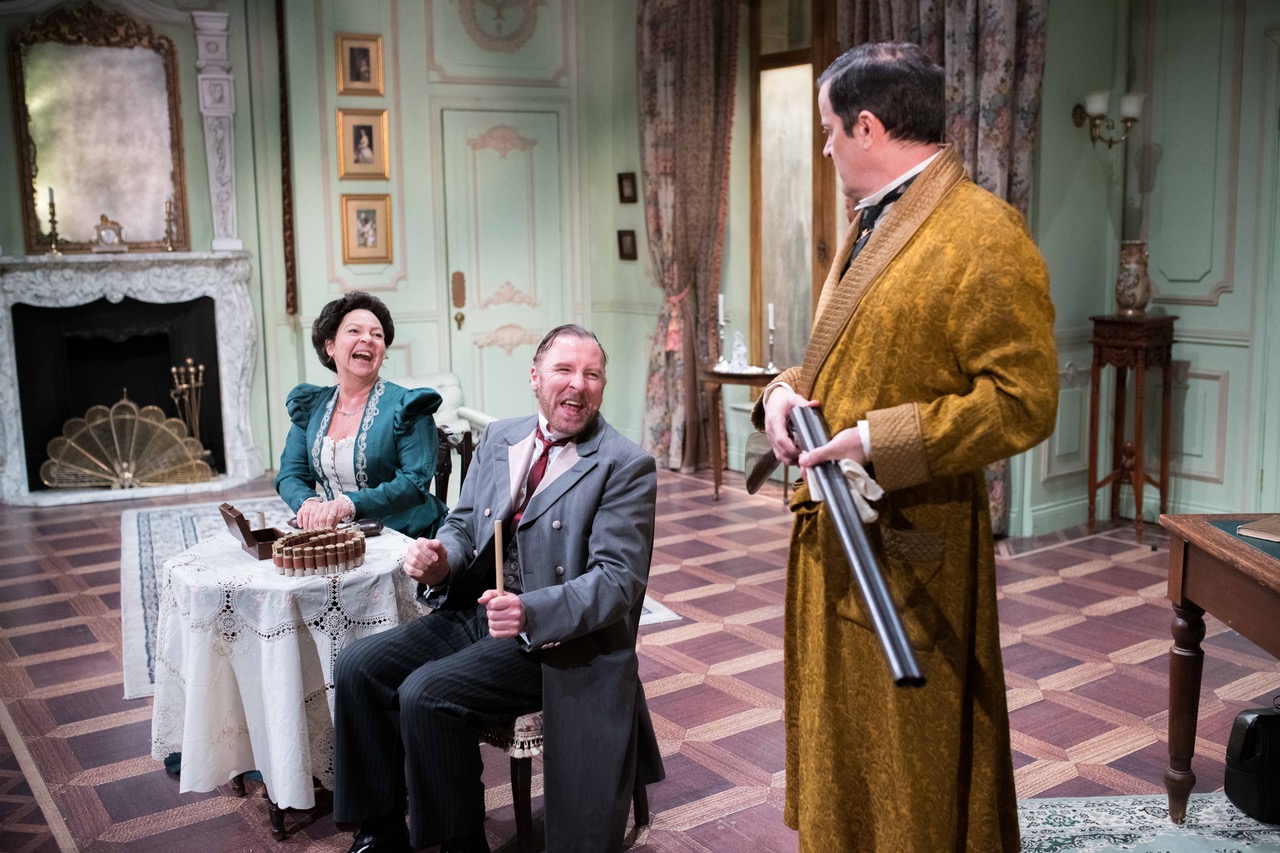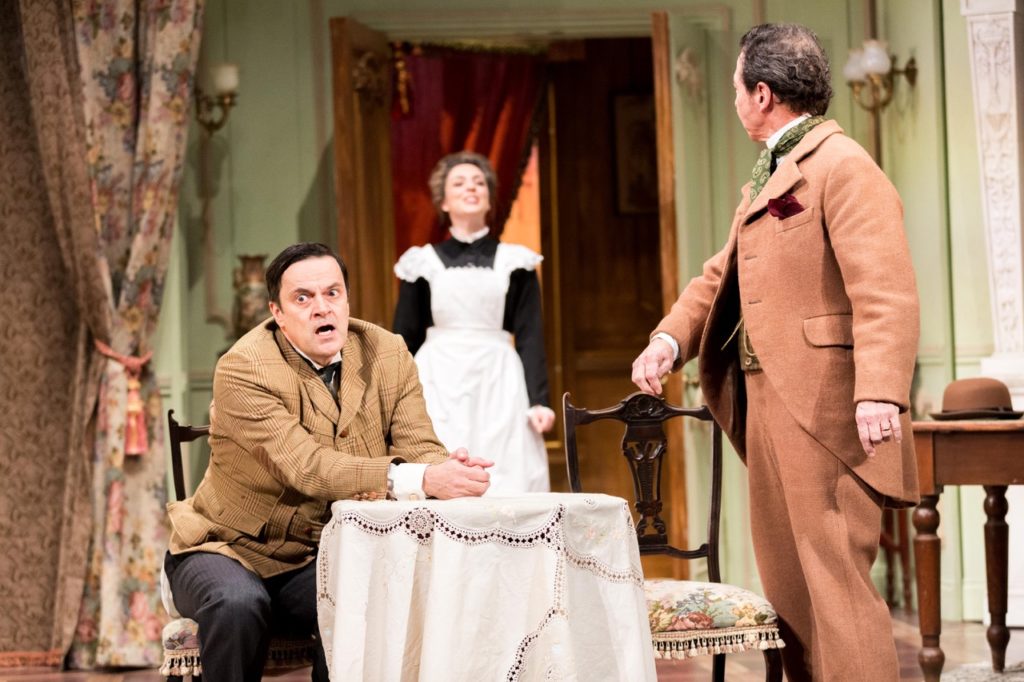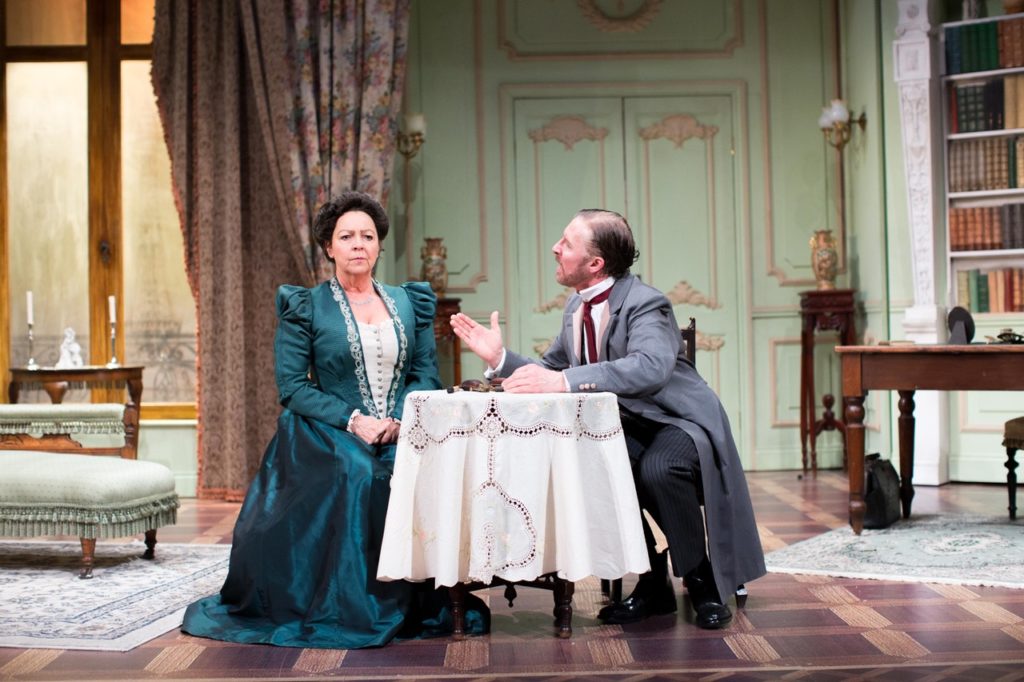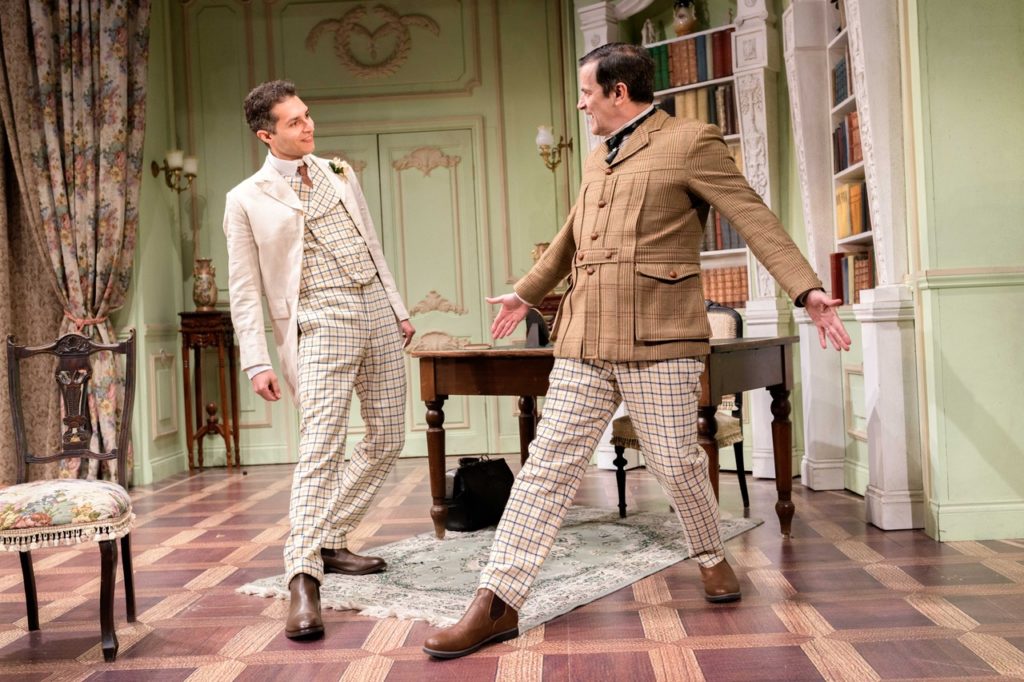Written by John Cleese, directed by Daniel Buckroyd,
Theatr Clwyd, February 18th 2020
 (4 / 5)
(4 / 5)
Was this a farce or was it farcical? With big names come many expectations and in the world of comedy in the UK, they do not come much bigger than John Cleese, from whom have come some of our seminal comic experiences. Indeed, Monty Python must rank as one of the most influential comedy series of the last century. Does this play match up to this reputation? I think it is unfair to ask that question.

The achievements of Cleese have stood the test of time and he need not do anything further to enhance this legacy. So why is he venturing into being a playwright for the first time? I get the impression he has a profound interest in farce. In fact his most famous sitcom, Fawlty Towers is pure farce. And as he is a creative person, he has chosen to bring to the stage an adaptation of ‘Monsieur Chasse’ by Georges Feydeau, a prominent French playwright spanning the end of the 19th and start of the 20th Centuries. This is someone whose plays have been adapted many times through the years, but to many more locally he is largely forgotten. So Cleese’s play should stand on its own merit, irrespective of the writer. After all, it is the play we view, not him.
Why do we need a farce? Surely our humour has moved on, become more sophisticated? Not at all. After the political events of the past few years, the time has never been more right for a farce, to give someone a heartfelt laugh, gently lampooning our double standards leaving us with a feel good factor. Does Bang, Bang succeed? Of course! With such a pedigree from actors and writer it would be hard not to fulfil its stated intention. This was a really enjoyable evening’s entertainment that had the house laughing throughout. It was well acted, with a real team ethic and great comic timing.

The plot was centred on a ‘happily’ married couple who pledged faithfulness to each other, however as their lives descended towards chaos, their infidelity and the accompanying tissue of lies was exposed in front of their peers. It was a clever script, delivered at a fast pace and never failed to grab your attention. The characteristics of good farce were all there. A growing sense of cringe worthy embarrassment, where you knew what was coming yet the characters were powerless in their attempts to stave off disaster. A ring of self-confidence, epitomized when characters made asides to the audience, which you knew would be shot to pieces as the play progressed. There was more than a gentle poke at any pomposity in all characters as they tried to fend off disaster with a smooth urbanity or a sense of moral indignation.

The script was true to the original work of Feydeau, yet had definite ‘Basil Fawlty’ moments. While all actors were excellent, I particularly enjoyed Tony Gardner’s portrayal of Duchatel as he bumbled along from a position of trust and control to a place where he ate plenty of humble pie. It was a nice comic touch to see the maid change increasingly from a deferential to a condescending attitude as the foibles of the characters unfolded. I liked also the set change where the cast doubled as scene shifters and acted as backing vocals to Leontine’s song. In the second act when the scenery moved mistakenly, this was handled assuredly by Gardner who turned it into a nice comic interaction with the audience.
The language of the play was as colourful as you might expect of Cleese – he has often used such, but you can question its necessity in this context. There is plenty of humour throughout the play already and one wonders if it fits the polite respectability that is the backdrop to the action.

If you are expecting this to be anarchic, avant garde humour, you will be disappointed, but this was never the original premise. It was a farce, well scripted, well acted and true to the artistic heritage of good farces and those seeing the play in that context should really enjoy it. So in an age where this word is overused, it was great to see a return to a proper farce.
Go on, enjoy, and have a laugh.
